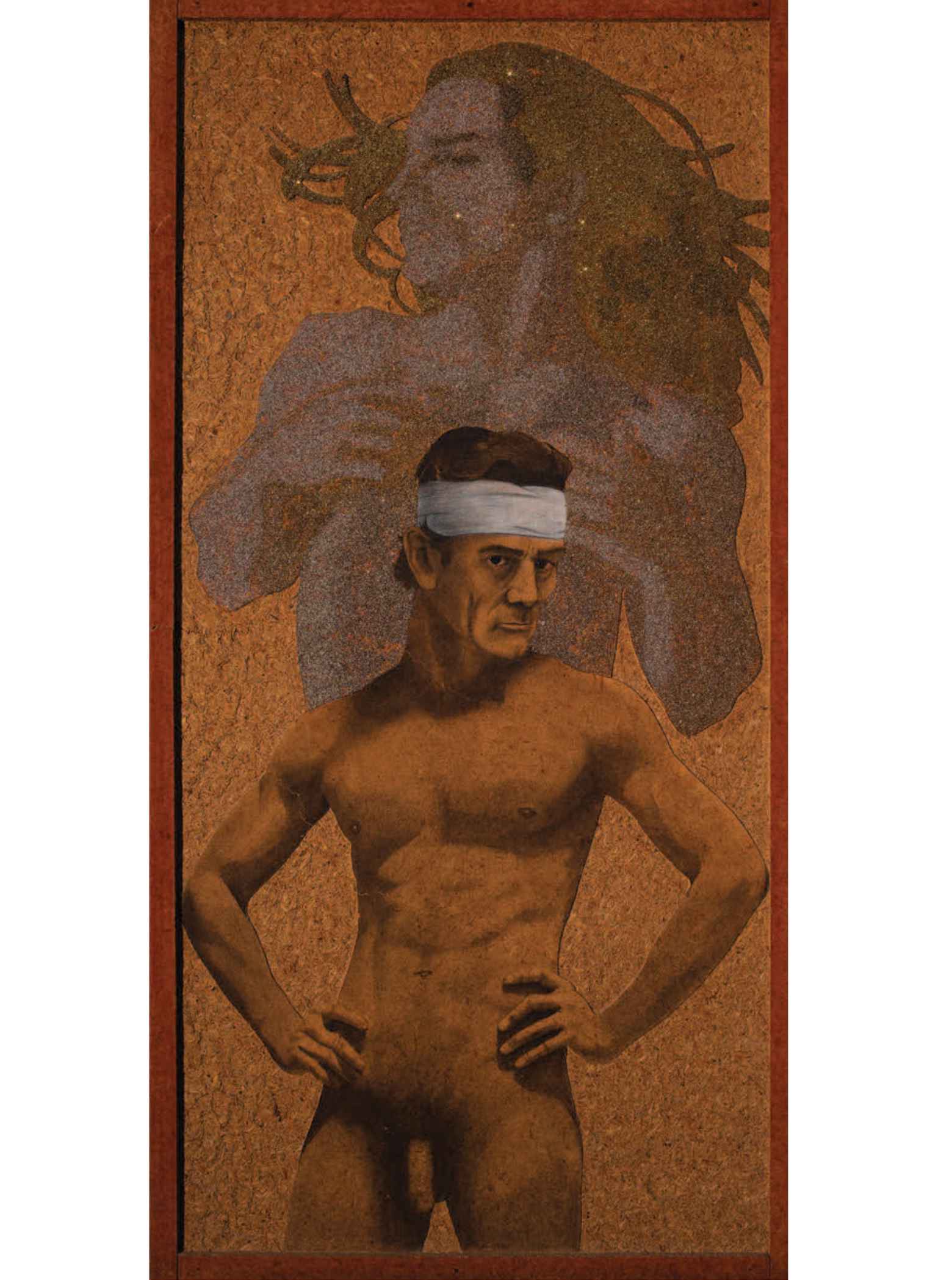Homenaje a Jean Genet, Homenaje a Yukio Mishima, Homenaje a Pier Paolo Pasolini
Ricardo Regazzoni
Homage to Jean Genet, Homage to Yukio Mishima, Homage to Pier Paolo Pasolini

This triptych evokes the figures of Yukio Mishima, Jean Genet, and Pier Paolo Pasolini as intellectuals opposed to social norms and prejudices. The work celebrates the homoerotic sensibility that Regazzoni shares with these three artists, a theme that was practically absent in the local art of his time. This piece was part of the exhibition Retrato de familia [Family Portrait] at the Galería Pecanins; critics deemed it scandalous. The triptych was shown along with 16 other “erotic male nudes,” encompassing portraits both of intellectuals and unknown faces taken from tabloid newspapers, at a time when police blotters and crime-related press expressed widespread homophobia.
These tributes combine an academic treatment with materials like gold leaf and glitter that incorporate camp values, in terms of affect and class, into the frame. Regazzoni had previously used materials like plush and sequins to depict a feminized sensibility. The naked figure appearing repeatedly behind the writers, both implicitly angelic and openly eroticized in his nakedness, is Joe Dallesandro, a model and actor in the films Warhol shot at the Factory. Dallessandro’s beauty and sculpted body made him a sex symbol of underground film in the 1960s and ’70s. To Regazzoni, the actor’s image was an “inspiring” symbol in terms of the classical iconography referenced in his painting: Nicolas Poussin’s The Inspiration of the Poet (1629–1630), translated into a homoerotic code.
RICARDO REGAZZONI (1942)
Homenaje a Jean Genet, Homenaje a Yukio Mishima, Homenaje a Pier Paolo Pasolini, 1977
Homage to Jean Genet, Homage to Yukio Mishima, Homage to Pier Paolo Pasolini
Graphite, soils, rabbitskin glue, and glitter on chipboard
Gift of the artist, 2018


